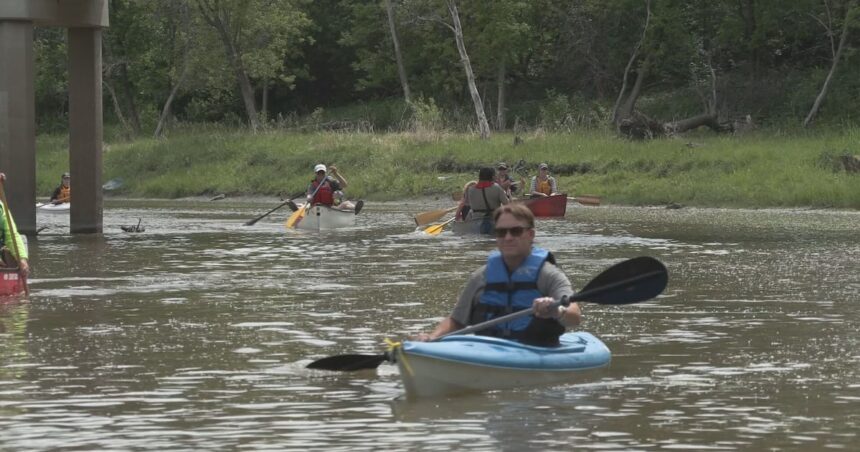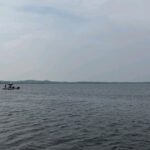The morning mist lifted slowly off the Seine River this weekend as dozens of participants dipped their paddles into the water, embarking on a journey that transcended mere recreation. The Seine River Métis Heritage Paddle Event in Winnipeg offered participants a rare opportunity to connect with Manitoba’s rich Métis history while traversing one of the region’s most historically significant waterways.
“These rivers were our highways long before roads existed,” explained Elder Joseph Lagimodiere, who led the traditional blessing ceremony before the paddlers set off. “For the Métis people, these waterways represent our lifeblood—they carried our ancestors, our trade goods, and our stories across generations.”
The annual event, now in its fifth year, has grown from a small community gathering to a significant cultural celebration that attracts participants from across Manitoba and beyond. Organized by the Seine River Watershed Conservation District in partnership with the Manitoba Métis Federation, the paddle combines environmental education with profound cultural significance.
Participants navigated a carefully planned 12-kilometer route that highlighted several historical sites, including former trading posts and river crossings once used by Métis voyageurs. At designated stops along the shoreline, knowledge keepers shared stories of Métis resilience, traditional ecological knowledge, and the historical significance of the waterway to Canada’s Indigenous heritage.
“What makes this event special is how it weaves together environmental stewardship with cultural reclamation,” said Marie Roussin, one of the event coordinators. “Many participants leave with a deeper understanding of not just Métis culture, but also the importance of protecting these watersheds for future generations.”
The paddle featured distinctly Métis elements, including traditional fiddle music at the launch site and a communal feast of bannock, wild rice, and locally harvested foods at the conclusion. Several participants wore the distinctive Métis sash—the ceinture fléchée—a symbol of cultural pride and identity.
Environmental scientists from the University of Manitoba were also present, conducting water quality testing and sharing information about the Seine River’s ecosystem. This aspect of the event highlights the intersection between cultural heritage and environmental conservation efforts in the region.
“The Seine River has faced significant environmental challenges over the decades,” noted Dr. Elaine Thompson, aquatic ecologist at the University of Manitoba. “Events like this help raise awareness about the need for continued conservation while acknowledging the river’s historical importance.”
For many Métis participants, the paddle represented something deeply personal—a reconnection with ancestral practices and knowledge. Catherine Delorme, who traveled from The Pas to participate with her children, described the experience as “healing.”
“My grandfather was a riverman who knew these waters intimately, but that knowledge wasn’t fully passed down because of historical pressures to assimilate,” Delorme explained. “Being here today, paddling these same waters with my children, feels like reclaiming a piece of our family story that was nearly lost.”
The event also attracted non-Indigenous participants eager to learn more about Manitoba’s diverse cultural heritage. Mark Sanderson, a recent transplant to Winnipeg from Vancouver, attended with his family.
“We wanted to understand more about the history of our new home,” Sanderson said. “Reading about Métis culture in a book is one thing, but experiencing even a small taste of the traditions firsthand creates a much deeper appreciation.”
Organizers hope the annual paddle will continue to grow, potentially expanding to include overnight components that would more closely mirror the historical voyageur experience. Plans are already underway for next year’s event, which may include additional educational components about Métis governance systems and traditional ecological knowledge.
As participants loaded canoes onto vehicles at day’s end, the sense of community was palpable. More than just a recreational paddle, the event had successfully bridged past and present, offering participants a living connection to Manitoba’s rich cultural tapestry.
In a time when many Indigenous communities are actively working to preserve traditional knowledge and practices, events like the Seine River Métis Heritage Paddle represent important steps toward cultural revitalization and public education. As the day concluded, many participants were left wondering: How might other communities across Canada create similar opportunities to honor Indigenous histories while fostering deeper cross-cultural understanding?

























